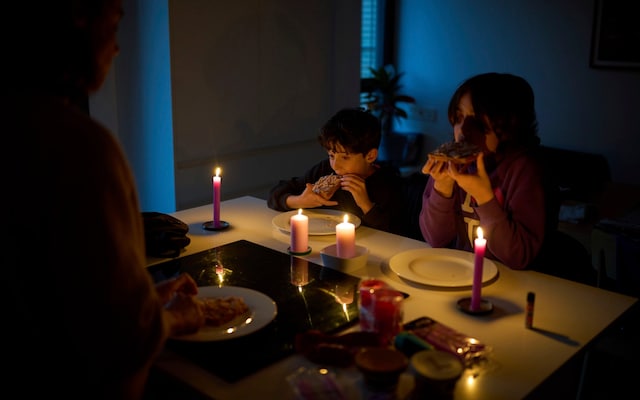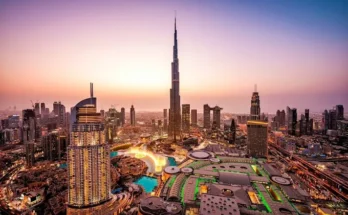Power in Spain and Portugal has been mostly restored after a mass blackout paralysed most of the Iberian Peninsula.
Just over 92 per cent of Spain’s power is back, REE, the country’s electricity operator said early on Tuesday, and around 80 per cent of customers in Portugal are reported to have electricity.
Spain has declared a state of emergency in what is believed to be Europe’s largest power cut.
The cause of the initial fault in the region’s electricity grid is still being investigated, and the EU has insisted that there were no indications that it was a cyberattack.
However, a heavy reliance on solar and wind energy is believed to have made the region’s power grids more vulnerable to an outage of this scale.

Portuguese grid operator REN said one possible cause for the blackout may be a “very large oscillation in the electrical voltages” that started in Spain’s grid and spread to Portugal’s system.
Pedro Sanchez, the prime minister of Spain, said the government would work “all night long” to restore power to the nation.
In an address to citizens, Mr Sanchez said “all state resources are being mobilised to restore normal supply as quickly as possible”.
He added: “We’ll be working flat out, all night long. With professionalism and commitment. As Spain always does in these situations.”

The unprecedented outages across Spain, Portugal and parts of southern France affected the daily lives of millions, grounding flights, halting trains and leaving whole cities without electricity or telecommunications.
Hospitals were forced to switch to emergency power generators and long delays at airports were recorded.
Madrid’s Barajas International Airport and Lisbon’s Humberto Delgado were closed after being left without power, while emergency generators were activated in Barcelona.
Lisbon’s airport has since reopened, but the airport’s management company is advising customers to contact their airline before going there.
When the lights went out, modern life ground to a halt for millions of people.
In Madrid and Barcelona, people staggered into the streets holding their smartphones up, trying in vain to connect to a network.
People desperate for information queued for battery-operated radios to get news about the power cut.
“We are back to old-school methods,” Iain Tozer, who lives in Barcelona, said.
The Madrid Open tennis competition was abandoned. Jacob Fearnley, the British tennis player, was forced to leave the clay court after scoreboards and a camera above the court were affected by the outage.
With long lines snaking outside supermarkets, ATM machines and petrol stations, people were not even certain if they would be able to pay with card or cash only.
Shelves were stripped bare on the Iberian peninsula, amid fears the power cut could presage a food shortage.
Even getting to the shops was a challenge. The government had urged drivers to stay off the roads after traffic lights stopped working.
Police were conducting traffic at some major junctions because the lights had stopped working, and many roads were gridlocked.
On one major junction, staff from the local padel tennis equipment store were using stop signs to help manage the flow of vehicles.
Trains and metros were stopped because of the outage.
The president of Renfe, Spain’s railway network, said 114 rescues of trains have been completed, involving more than 35,000 people, and many of the trains were being towed. As of late Monday, three trains had not yet been evacuated.
Footage from Madrid showed passengers walking through dark corridors of the city’s metro, and in Bilbao, people on a funicular were forced to walk along rail tracks.
As night fell, more than 30 train stations across Spain opened overnight for stranded travellers to have a place to sleep.
Adif, Spain’s railway management company, shared images of passengers sleeping on cots, seats and floors in stations across the country.
It is unclear if service will return to normal on Tuesday.
But for people who were desperate to travel, the halting of trains and metros left them with little choice but to wait for hours in queues for a bus.
Passengers told El Pais that some queues snaked around for several blocks, and that buses were passing without stopping because they were already too full.

Jose Luis Martinez-Almeida, the conservative mayor of Madrid, said he expected Tuesday to be a “difficult day” for travel in the city, but announced that buses would be free of charge and operating normally.
The president of Madrid’s regional government had earlier requested that the army be deployed to the region to maintain order, but the request has so far not been answered.
Mr Sanchez promised to restore power nationwide “soon” with help from Morocco and France.
In Portugal, Prime Minister Luis Montenegro said that power would be fully restored later in the night. He said all the state services remained operating in the country despite the difficulties.



